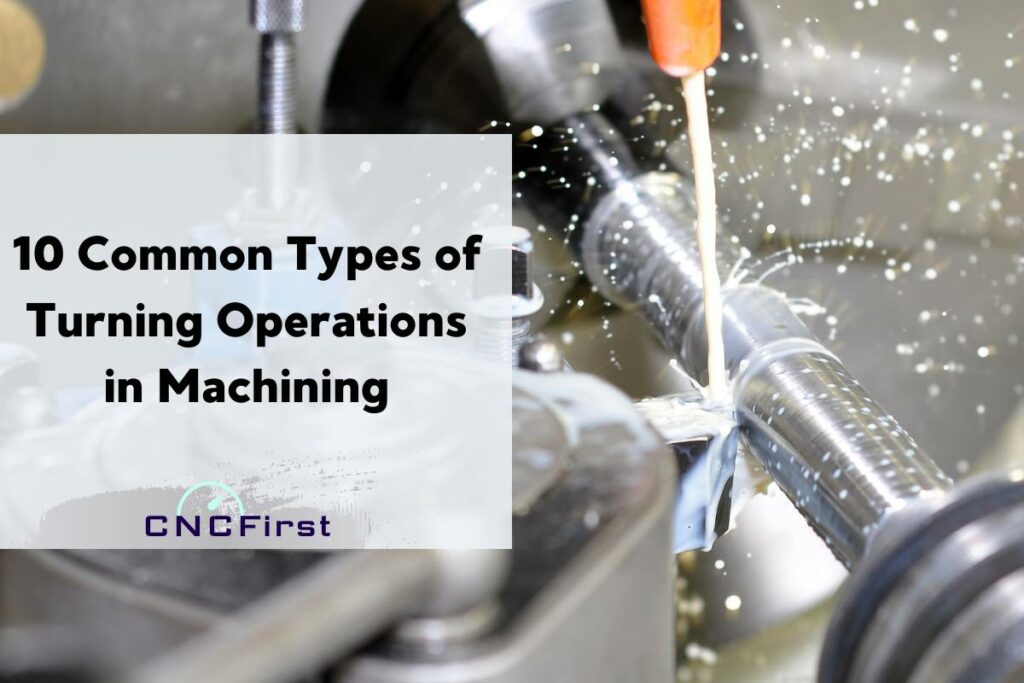
There are a variety of aluminum alloys that can be suitable for CNC machining, and each has its own unique properties.
As a leading corporation in machining, in this blog post, we will compare some common alloys used in aluminum machining.
We’ll discuss each series of aluminum alloys and help you decide which is best for your project. Stay tuned!
What Are Aluminum Alloys And What Are Their Uses In Machining
Aluminum alloys are mixtures of aluminum and other metals, such as copper, magnesium, or silicon. They are suitable for a wide variety of products, from aircraft to soda cans. Aluminum alloys are classified into two groups: wrought alloys and casting alloys.
Wrought alloys are made by shaping aluminum ingots through hot and cold working processes, such as rolling, extrusion, and forging. These alloys typically have good Corrosion resistance and high strength-to-weight ratios. Common wrought aluminum alloys include 1100, 2024, 3003, 5052, 6061, and 7075.
Casting alloys are made by pouring molten aluminum into molds. These alloys are typically suitable for products that require high levels of detail, such as engine parts. Common casting aluminum alloys include 356, 380, 413, and 535.
Some common uses for aluminum alloys in machining include creating cams, gears, pulleys, and other machine parts. Aluminum is a popular material for these applications because it is strong yet lightweight, and it resists corrosion. When machining aluminum alloy parts, it is important to use high-speed steel or carbide cutting tools to prevent the material from wear and tear.

Most Common Aluminum Alloys For Aluminum Machining
Aluminum alloys can be classified into different categories based on their composition and properties. The most common alloying elements are the 1xxx, 2xxx, 3xxx, 5xxx, 6xxx and 7xxx series.
1xxx Series Alloys: They are also commercially pure aluminum. These alloys are 99% pure aluminum and are very ductile and have good corrosion resistance. They are often suitable for electrical applications.
3xxx Series Alloys: These alloys are made with 1-2% magnesium and offer good formability and weldability. They are ideal for structural applications.
5xxx Series Alloys: These alloys are made with 3-5% magnesium and offer good formability, weldability, and corrosion resistance. They are ideal for marine and transportation applications.
6xxx Series Alloys: These alloys are made with 1-2% silicon and offer good weldability and strength. They are often suitable for aerospace, construction, and manufacturing applications.
Here are some common aluminum alloys for aluminum machining and their properties:
-6061 aluminum alloy: aluminum 6061 has good weldability and corrosion resistance, with medium strength. It is the most common aluminum alloy in the aerospace industry and has a wide range of applications.
-Aluminum 6082: it has similar properties to aluminum 6061; however, 6082 has a slightly higher tensile strength.
-7075 aluminum alloy: high strength, high hardness, good fatigue resistance, average weldability, and corrosion resistance. It is ideal for aircraft structural parts and other high-stress parts.
-5052 aluminum alloy: good weldability, corrosion resistance, and formability, with medium strength. It is often suitable for sheet metal parts such as tanks and marine applications.
-2011 aluminum alloy: good machinability, poor weldability, high strength. It is often suitable for precision machining applications where good machinability is required.
-2017 aluminum alloy: excellent machinability, poor weldability, high strength.
-2024 aluminum alloy: good weldability and corrosion resistance, with high strength. It is often suitable for aircraft structural parts and other high-stress parts.
-3003 aluminum alloy: good weldability and corrosion resistance, with medium strength. It is often suitable for sheet metal parts such as tanks and marine applications.

The Benefits Of Using Aluminum Alloys In Machining
The use of aluminum alloys in the machining process can offer a number of benefits, including:
1. Increased Strength and Durability: Aluminum alloys are known for their strength and durability. This makes them ideal for use in applications where high levels of stress and wear are expected.
2. Excellent Machinability: Aluminum alloys are very easy to machine, thanks to their low melting point and high thermal conductivity. This allows for faster and easier machining, which can lead to increased productivity.
3. Improved Surface Finish: Aluminum alloys offer an improved surface finish compared to other materials. This can lead to better-looking and longer-lasting parts.
4. Reduced Costs: The use of aluminum alloys can help to reduce overall costs, thanks to the increased efficiency and productivity that they offer.
How To Select The Right Aluminum Alloy For Your Project
There are a few considerations to keep in mind when selecting the right aluminum alloy for your project.
The first is the intended use of the alloy. Different alloys have different properties that make them more or less suited for specific applications. For example, some alloys are more corrosion-resistant than others, while others have higher strength or ductility.
The second consideration is the cost of the alloy. Different alloys can have widely varying costs, so it’s important to select an alloy that fits your budget.
Finally, you’ll need to consider the availability of the alloy. Some alloys are more commonly used than others, and some may be difficult to find in the quantities you need.
Keep these considerations in mind when selecting the right alloy for your project, and you’ll be sure to find the perfect material for the job.
The Importance Of Quality Control In The Manufacturing Aluminum Alloy
There are a number of reasons why quality control is so important in the manufacturing of aluminum alloys.
First, as with any manufactured product, the properties of the final product can only be as good as the quality of the raw materials used in its production.
Second, aluminum alloys are often subject to a great deal of processing, including casting, heat treatment, and welding, which can adversely affect their final properties if not properly controlled.
Finally, aluminum alloys are ideal for critical applications where even a small decrease in strength or increase in weight can have serious consequences.
Therefore, it is necessary to consider quality control in the manufacture of aluminum alloy.
In aluminum alloy manufacturing, we need to consider many different aspects of quality control.
First, we need to carefully check and control the composition of the alloy controlled to ensure that it meets the specifications for the intended application.
Second, we need to closely monitor the melting and casting processes to prevent defects in the final product.
Third, we need to carefully control the heat treatment process to ensure that the desired properties are achieved.
Fourth, the welding process must be closely monitored to prevent defects and ensure proper joint strength.
Finally, we need to inspect the final product for defects and dimensional accuracy.
Each of these aspects of quality control is important in its own right, but they are also interrelated. For example, the composition of the alloy will have a direct impact on the properties of the final product. The melting and casting processes can also affect the composition of the alloy, as well as the microstructure and mechanical properties.
Our Machining Capability Of Aluminum Machining
If you’re in need of aluminum machining, look no further than our machine shop. We have the capability to machine all types of aluminum alloys, from small parts to large components.
We provide CNC milling and CNC turning services and also have various surface finishes for aluminum parts.
Whether you need rapid prototypes or large production runs, we can handle it. We will work with you to ensure your parts meet your exact specifications. So if you’re looking for quality aluminum machining, give us a call today.

Conclusion
In conclusion, aluminum alloys are an essential part of the machining process. By understanding the different types of alloys and their properties, you can select the suitable alloy for your project. You can visit our homepage to see more details about our CNC machining for all kinds of aluminum alloys.
FAQ
What Are the Common Applications of Aluminum Alloys?
Aluminum alloys are lightweight and machinable, so, they are used to manufacture a wide range of parts.
-Automotive applications: car and motorcycle parts, truck bodies
-Aerospace: missile parts, aircraft wings, fuselage structures, gears, and shafts.
-Construction applications: building facades, window frames, doors, roofs, pipes
-Consumer durables: appliances, cookware
-Electrical applications: cables, transformers
-Foil applications: food packaging, cigarette packaging
-Machinery applications: engine parts, machine tools
-Military applications: armor, vehicles
-Packaging applications: cans, foil containers
-Recreational applications: sports equipment, boats, bicycles





